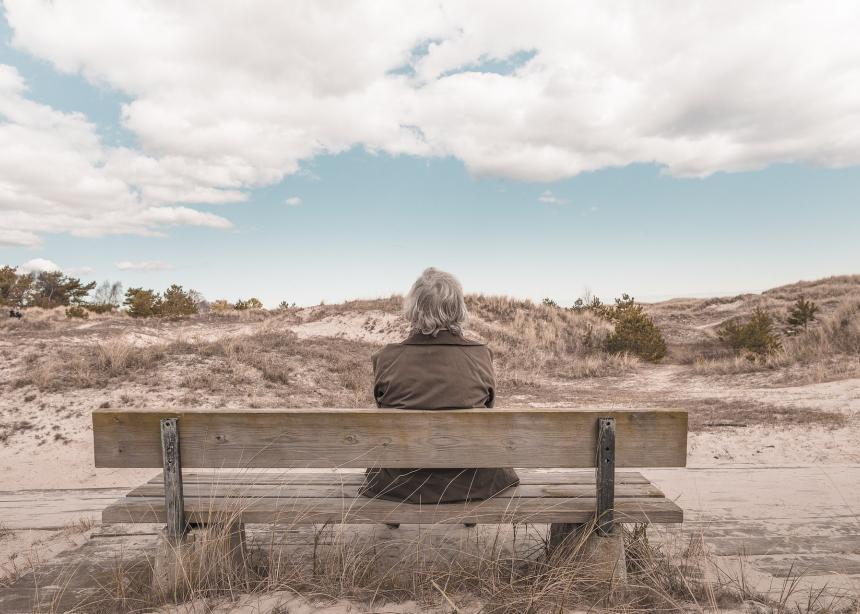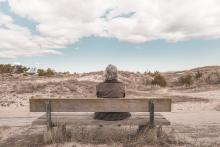A Winnipeg winter has many pleasures: plentiful sunshine, thick river ice for skating, cozy cafés and a wealth of artistic treasures. A Winnipeg winter is also long and challenging, hard on body and spirit.
One of the ways I cope with winter is a trip to the spa, to soak in the hot mineral pool, sweat in the sauna and de-stress under the soothing hands of a massage therapist. My most recent trip there included a couple of interactions that have me pondering aging and attitudes toward aging.
While in the sauna, a man conversationally engaged me in topics of weather, neighbourhoods and family. When he asked about my age, with no trace of self-consciousness, I was more than a little surprised. I have no problem with “claiming my age,” so I answered his question, simultaneously thinking, “You definitely have different cultural rules than I do!” And, “If your wife were here [she was outside the sauna by the pool], she would shush you.” He treated my answer the same matter-of-fact way he did other responses.
Later, I told the story to the massage therapist and, after we laughed a bit, she wondered if I minded discussing age, and then offered to guess mine and tell me hers. When I corrected her guesstimate, which was off by 15 years, she expressed astonishment—a version of “I can’t believe it! You look so young!” She also said I made her day, which I think related to her looking down the road—she was 20 years younger than me—and imagining what 64 might look like.
I don’t mind being a positive role model. I have benefitted enormously from those who have gone before me, and I am willing to offer what I can to younger generations. At the same time, I am bothered by the ongoing negative messages about aging. Even more so, I am bothered that I share them in some ways. I am pleased the massage therapist praised my youthfulness, even as I squirm with discomfort.
My appearance is only partially related to the care that I take with health and diet. The way I look is largely due to factors over which I have no or little control: the excellent genes passed on by my parents, our country’s healthcare, a secure income, and the privileges that come with being white. Through conversations with my mother and other elderly seniors, I’ve learned how quickly the security based on such factors can crumble.
Our dominant culture fears aging and devalues the aged. Look and listen and you will notice that negativity in many forms. By way of contrast, I hold up an aspect of Indigenous culture. In each Indigenous-led gathering I attend, the first words are always given to the elders or include an acknowledgement of honour toward elders. How would I carry my aging differently if that was my culture?
Catholic theologian and wise elder Jean Vanier describes the aging process as wired into our beings. It is God’s design as we age, Vanier suggests, for our muscles to become less resilient, hearing and vision to decrease, and bones to become more brittle.
Vanier’s observation led me to wonder if such wiring in our bodies is God’s way of preparing us to release life on earth as we move towards dying. We begin life completely dependent on others, and require significant care for some years before we stand on our own. We cherish independence and self-sufficiency, and then we age and become more frail and dependent on others. Might those steps of letting go be steps carrying us into deeper trust in, and reliance on, God?
Melissa Miller (familyties@mymts.net) has a passion for helping people develop healthy, vibrant relationships with God, self and others.
See other columns in Melissa Miller’s series on difficult conversations:
Can we talk about suicide?
Can we talk about MAID?
Can we talk about death?
Can we talk politics?
Can we talk?




Add new comment
Canadian Mennonite invites comments and encourages constructive discussion about our content. Actual full names (first and last) are required. Comments are moderated and may be edited. They will not appear online until approved and will be posted during business hours. Some comments may be reproduced in print.